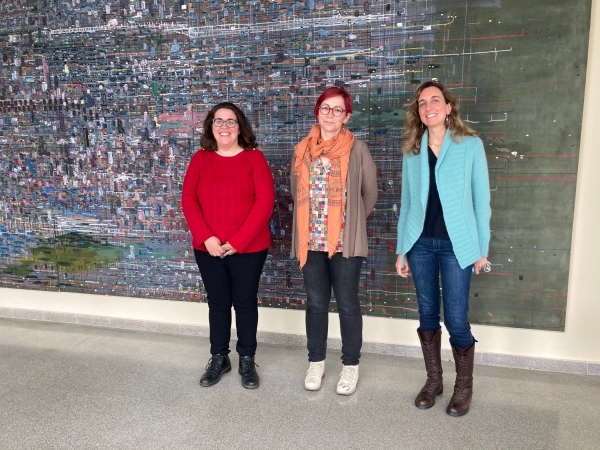Three researchers at the University of Cordoba are coordinating a European project that aims to create educational materials for those teaching Mathematics to schoolchildren ages 8 to 13. The PLURIMATHS project has just gotten underway, slated as a 36-month initiative in which the University of Turin (Italy), the Free University of Brussels (Belgium) and the Metropolitan University of Manchester (United Kingdom) are also participating.
The implementation of this project will make it possible to create innovative learning material in different European languages: English, French, Italian, Dutch and Spanish.
The head of the Cordoban team, Cristina Huertas, explained that PLURIMATHS uses "the concept of multiple literacies, together with active and innovative methodologies for the training of Mathematics teachers in multilingual and multicultural contexts." Specifically, the approach is based on using four methodologies: game-based learning, cooperative work, problem-based learning, and attention to diversity and inclusion; through which to "create, test and disseminate material so that teachers can use it successfully in their daily work." The UCO team, in addition to coordinating the entire project, is responsible for developing the material for problem-based and game-based learning; that is, two of the four methodological dimensions that comprise PLURIMATHS.
Huertas, together with UCO researchers Natividad Adamuz and Elvira Fernández de Ahumada, face the task of developing manuals and a guide of specific contents so that teachers can use them as reference materials in the classroom and design their own multilingual activities and contents. The idea is for the material created to be fundamentally digital, open and accessible.
This project complements another one already completed, FRAMING CLIL, based on the learning of mathematics through video games, but mainly aimed at students. PLURIMATHS, on the other hand, focuses on the initial and ongoing training of Mathematics teachers, with whom the materials, based on the four methodologies, will be tested, and the results assessed. The idea is for "those who teach to be able to generate, using the materials available, new ones to teach other Mathematics content," added Huertas.
In 2023, the partners on the European project will meet in Brussels for the presentation of the first materials designed, which will be tested in an international context after having been tried out at each participating university.
For the Cordoba team, coordinating the PLURIMATHS project and participating in its implementation entails building on a work network already begun with European researchers on an earlier project, creating synergies between different areas of knowledge, and, above all "extraordinary professional enrichment."
This project has been funded with support from the European Commission. This publication reflects the views only of the author, and the Commission cannot be held responsible for any use which may be made of the information contained therein.


